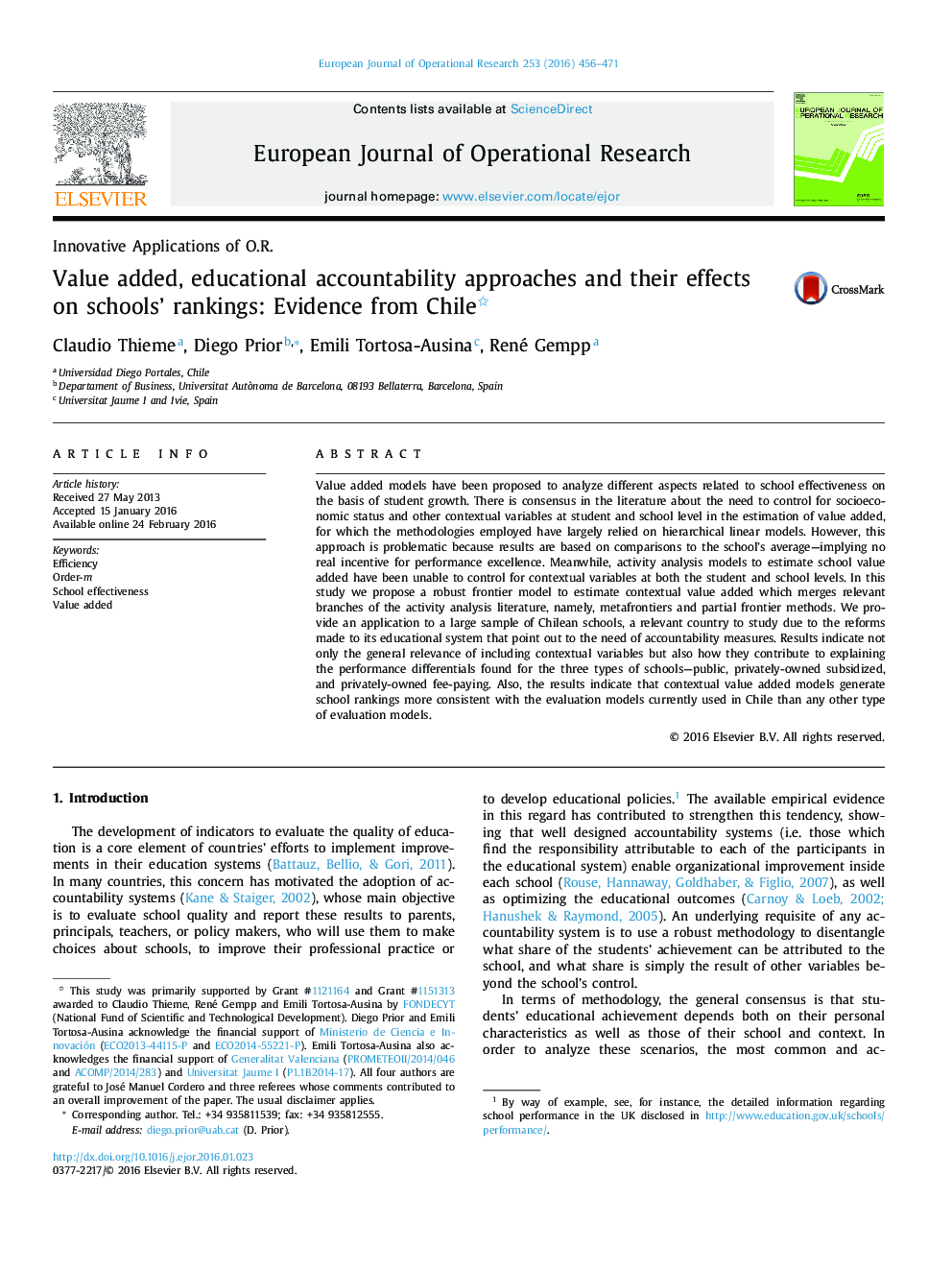| Article ID | Journal | Published Year | Pages | File Type |
|---|---|---|---|---|
| 479257 | European Journal of Operational Research | 2016 | 16 Pages |
•We propose a robust model to estimate contextual value added efficiency.•An assessment of the reforms in the Chilean system is presented.•Performance differences decrease when controlling for contextual variables.
Value added models have been proposed to analyze different aspects related to school effectiveness on the basis of student growth. There is consensus in the literature about the need to control for socioeconomic status and other contextual variables at student and school level in the estimation of value added, for which the methodologies employed have largely relied on hierarchical linear models. However, this approach is problematic because results are based on comparisons to the school’s average—implying no real incentive for performance excellence. Meanwhile, activity analysis models to estimate school value added have been unable to control for contextual variables at both the student and school levels. In this study we propose a robust frontier model to estimate contextual value added which merges relevant branches of the activity analysis literature, namely, metafrontiers and partial frontier methods. We provide an application to a large sample of Chilean schools, a relevant country to study due to the reforms made to its educational system that point out to the need of accountability measures. Results indicate not only the general relevance of including contextual variables but also how they contribute to explaining the performance differentials found for the three types of schools—public, privately-owned subsidized, and privately-owned fee-paying. Also, the results indicate that contextual value added models generate school rankings more consistent with the evaluation models currently used in Chile than any other type of evaluation models.
